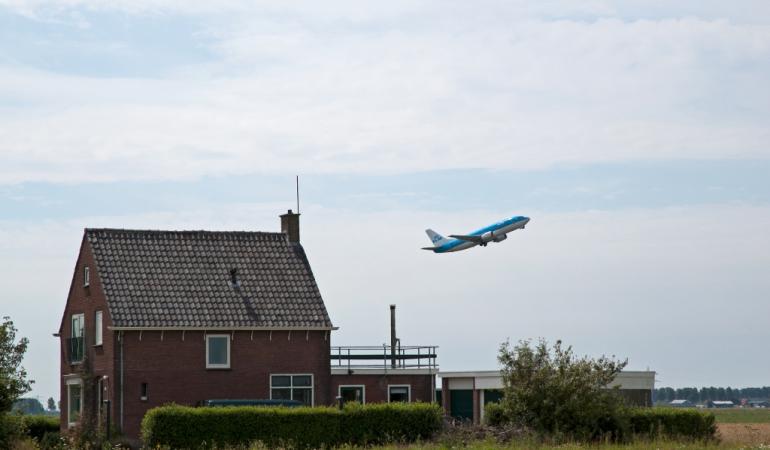
People who live near Schiphol are regularly exposed to higher concentrations of ultrafine particles. This can have an effect on health. On days with high exposures, children with respiratory complaints suffer more and use more medication. Complaints include shortness of breath and wheezing. These are the conclusions of new research by RIVM, in collaboration with Utrecht University and the Academic Medical Centre (AMC). Never before has such extensive research been carried out into ultrafine particles from air traffic and health.
Short-term reductions in lung function were measured in children and healthy adults as a result of higher short-term exposure. In healthy adults, short-term changes in heart function were also measured. On average, these changes are small and will not necessarily result in health problems. However, these changes can be more significant for people who are more sensitive to them, for example, because they suffer from asthma or a heart condition.
Ultrafine Particles
The effects occur with ultrafine particles originating from air traffic, as well as from other sources, such as road traffic. There are no indications that the health effects of air traffic are different from those of road traffic.
Broad research programme
The conclusions are based on three sub-studies: a study of 191 primary school children in residential areas near Schiphol, a study of 21 healthy adults immediately adjacent to Schiphol, and a laboratory study with lung cells. The results of this research cannot yet provide insight into the possible long-term health effects of ultrafine particles.
RIVM has now started research into the effects of long-term exposure to ultrafine particles from air traffic. This research makes use of the results of the 'measuring and calculating research' into the number of ultrafine particles in the vicinity of Schiphol, and the results of the research into direct effects on health. The results of this research are expected to become available in 2021.